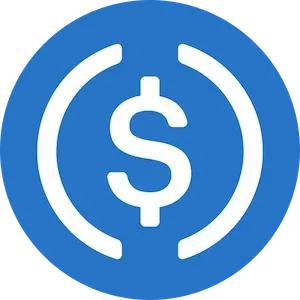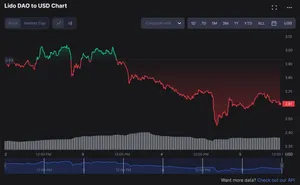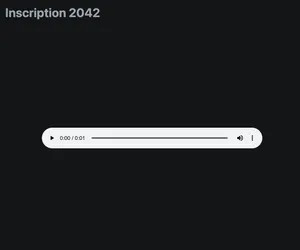Mark Zuckerberg had once talked about eventually using NFTs for Meta's metaverse projects, suggesting that eventually "the clothing that your avatar is wearing in the metaverse, you know, [could] be basically minted as an NFT and you can take it between your different places". It sounds like that plan may no longer be on the table now.
Meta pulls the plug on NFTs
Euler Finance exploited for almost $200 million
Euler announced that they were aware of the exploit, and were "working with security professionals and law enforcement".
On April 3, Euler Finance announced that they had completed successful negotiations, and that "all of the recoverable funds taken from the Euler protocol on March 13th have now been successfully returned by the exploiter". Unfortunately, based on on-chain transfers, this appeared to only be around $31 million.
Regulators shut down crypto-friendly Signature Bank
A joint statement from federal regulators announced that "All depositors of this institution will be made whole... no losses will be borne by the taxpayer. Shareholders and certain unsecured debtholders will not be protected. Senior management has also been removed."
The shutdown of Signature and the collapse of Silvergate leave many companies in the crypto industry without much access to the US banking system.
PeopleDAO loses $120,000 after payment spreadsheet is shared publicly
When team leads reviewed the spreadsheet to sign off on the payments, they didn't see the row, and there was no rollup showing total payments or anything else that would've helped them catch the malicious activity. The transactions were uploaded to a tool allowing asset transfers via CSV, and the required six out of nine multisig members approved the transaction.
PeopleDAO have reported that they're working with various security researchers to track the funds, and have reported the theft to the FBI and FTC.
USDC loses peg to the dollar
That evening, Coinbase announced they would be pausing USDC redemptions for dollars until the following Monday, claiming it was only because in times of high volume, they needed to process transfers via the traditional banking system. Despite their stated reason, this deepened fears about the stability of USDC, which is supported in part by Coinbase.
The price of USDC began to wobble on smaller, less liquid exchanges like Gemini and Kraken before the issue was reflected more widely. However, most exchanges were showing USDC trading at prices between $0.90 and $0.98 later that night — a noticeable departure from USDC's normally fairly steady peg.
A sustained de-peg would wreak havoc on the crypto industry, where USDC is the second largest stablecoin and boasted a $43 billion market cap (at least before substantial outflows surrounding the SVB concern). Other stablecoins even have exposure to USDC, with both FRAX and DAI using USDC for significant portions of their collateral.
Someone attempting to swap ~$2 million in 3CRV token ends up with $0.05 due to apparent Kyber issue
Kyber seemed to acknowledge that the issue was on their end, tweeting that "We have been in touch with him and are investigating the issue. We will provide an update soon."
Coinbase pauses redemptions of USDC for dollars
On the evening of the tenth, Coinbase announced that they would be "temporarily pausing USDC:USD conversions over the weekend while banks are closed," stating that "during periods of heightened activity, conversions rely on USD transfers from the banks that clear during normal banking hours".
"Your assets remain safe & available for on-chain sends," they said: cold comfort for those who are afraid their USDC may not be worth $1 come Monday.
Coinbase is one of the firms behind USDC, and its decision to stop processing redemptions is likely to add to the concern over the stablecoin's... stability.
Bankrupt BlockFi has at least $227 million at collapsed Silicon Valley Bank
The US Trustee reportedly warned BlockFi counsel on March 6 that the company needed to "immediately take steps to safeguard these funds in compliance with" the depository agreement, because a MMMF was not in compliance. BlockFi responded that the account was FDIC insured (up to the FDIC's $250,000 limit), but the Trustee maintains that that is not accurate.
- "BlockFi has $227 million in uninsured funds in Silicon Valley Bank", The Block
- Motion, In re: BlockFi
Silicon Valley Bank collapse causes crypto contagion concerns
SVB was also the preferred bank for various giants in the crypto VC world, including Andreessen Horowitz and Sequoia Capital. Pantera Capital also used SVB as a custodian.
Huobi Token flash crashes by 90%
Sun also announced that he had transferred $100 million to Huobi to provide more liquidity. He also announced that "Huobi will bear all leverage-through position losses on the platform resulted from this market volatility event of HT."
Although the token recovered quickly, the flash crash sparked rumors that Huobi was insolvent.
Blockchain.com shutters asset management arm
New York Attorney General sues KuCoin, claims ETH is a security
The NYAG took the additional step of alleging that ETH is a security. Many have argued that Bitcoin and ETH, the native token of Ethereum, are not securities because they are "sufficiently decentralized". The NYAG, however, wrote in the press release announcing the lawsuit that, "This action is one of the first times a regulator is claiming in court that ETH, one of the largest cryptocurrencies available, is a security. The petition argues that ETH, just like LUNA and UST, is a speculative asset that relies on the efforts of third-party developers in order to provide profit to the holders of ETH."
The NYAG is also going after KuCoin for offering a lending and staking product, a category of product that has recently been a focus of various enforcement actions. They claim that KuCoin did not comply with a subpoena.
Hedera Network halts access after exploit
Hedera has not disclosed how much had been stolen. Total value locked (TVL) on the network dropped 33% from $36.1 million to $24.6 million.
Some balked at Hedera's ability to simply turn off user access to the network, despite claiming to be a decentralized project.
Turkish electric vehicle company Togg announces presale via NFT, then scraps the plan after customers have already bought in
However, shortly after the NFT sales began, the platform crashed. Then, very soon after the sale began and Togg began addressing the issues with the platform, a series of earthquakes devastated portions of Turkey. As a result, Togg announced they would be postponing the sale until a later announcement.
On March 8, Togg announced that they had canceled their plans to conduct the pre-order process by NFT drawing, and that any NFT holders would not be prioritized in the pre-order.
This infuriated some customers who had purchased AVAX solely intending to use it to obtain a pre-order slot — particularly because AVAX is now priced below $15, meaning those who've been holding AVAX since purchasing it have lost 25%.
- "Togg to sell pre-order rights with NFTs", Hurriyet Daily News
- Tweet by Togg
Gemini reportedly loses banking with JPMorgan
It's hard to say why JPMorgan might have severed ties with Gemini — it could be related to recent statements from regulatory agencies frowning on banks taking crypto companies as clients, although Coinbase noted that it continues to have an active banking relationship with JPMorgan.
JPMorgan is not Gemini's only banking partner, so despite the blow to Gemini, this will not cut them off from banking.
Silvergate bank collapses
Silvergate's collapse may worsen crypto's already tenuous relationship with US banks. Silvergate was one of the few "crypto-friendly" banks, and the clients it previously served — among them, Crypto.com, Bitstamp, and Paxos — may face challenges finding a reliable replacement.
- "Silvergate has collapsed", The Verge
- "Crypto Bank Silvergate Capital Says It Will Shut Down; Stock Plummets", The Wall Street Journal
Lido token price tanks after podcaster spreads inaccurate rumor of Wells notice
Hoffman later retracted the statement in a long tweet and apologized, and the LDO price recovered somewhat, though not to its initial level. However, he continued to claim that "there is at least one confirmed Wells Notice that has gone out recently, that isn't known to the public", but wrote that "the idea of a mass recent carpet bomb isn't correct".
WSJ alleges Tether, Bitfinex, and related companies used falsified documents to obtain banking
Among other allegations, the WSJ outlined how Tether was repeatedly denied accounts at New York's Signature Bank, and so ultimately got an executive at an aviation fuel broker called AML Global to open an account that appeared to be used to fraudulently process transactions on behalf of Tether and Bitfinex.
Tether is the largest stablecoin in circulation, though its entire existence has been marred by questions around its legitimacy and the status of its claimed reserves.
Silvergate crypto-focused bank faces crisis
On March 1, Silvergate revealed that they would miss the deadline to file their annual report with the SEC, which they blamed on regulatory inquiries. They also revealed even more losses, which added to the massive $887 million in losses they experienced in Q4 2022. They also disclosed that they were having to evaluate whether the bank was going to be able to survive.
Silvergate's stock plunged on the news, worsening its already marked decline in price over 2022–23. Some crypto firms began distancing themselves from the bank, as well: Coinbase announced on March 2 that they would no longer be transacting with Silvergate "in light of recent developments and out of an abundance of caution". Galaxy Digital, Paxos, CBOE, Gemini, Crypto.com, and Bitstamp also announced they would cease transfers to and from Silvergate, and Circle announced they would be "unwinding certain services with them".
Developers accuse Binance of stealing their hackathon idea after Binance launches similar AI NFT product
Shortly after its launch, a group of developers accused Binance of stealing an idea they had presented at a December 2022 BNB Chain hackathon. Those developers had been awarded first place and $5,000 for "Chatcasso", a nearly identical tool.
Binance has refuted the allegations of theft, with a spokesperson acknowledging the "similarities" but claiming that "Bicasso was designed and developed independently more than two weeks before the BNB hackathon".
"It's disheartening to see a company that claims to support innovation and development steal from the very people who are working hard to build the ecosystem. Who would feel safe entering a hackathon? I don't." wrote one of the developers from the team. The developer also stated that they had not signed any contracts that would have assigned the rights to their work to the company, as is the case in some hackathons.
BitBNS discloses that they were hacked in February 2022, hid it as "system maintenance"
After zachxbt's investigation, BitBNS admitted that they had hidden the hack from customers. "Law enforcement advised us that the users should be educated about the incident only after the investigation is completed or reaches a dead end," said BitBNS CEO Guarav Dahake, who also said that some funds were ultimately recovered thanks to law enforcement and cooperation from other exchanges.
FTX co-founder Nishad Singh pleads guilty, agrees to co-operate against SBF
In direct messages to a Vox journalist in November 2022, shortly after the FTX bankruptcy, Bankman-Fried wrote that Singh had left, and that he was feeling "ashamed and guilty" because customer deposits were missing.
According to bankruptcy filings, Singh had received a $543 million loan from Alameda Research. Some of this may have gone towards illegal political donations, which Singh admitted in court to making, saying they were intended to bolster Bankman-Fried's and FTX's influence among politicians.
- "FTX Co-Founder Nishad Singh Pleads Guilty to Fraud Charges", The Wall Street Journal
- "FTX's Singh pleads guilty to six U.S. fraud, conspiracy charges", Reuters
Two BNB-based projects attacked for around $700,000 each
Later, 80% of funds in the liquidity pool for the defi project LaunchZone were suddenly drained, tanking the LZ token price over 80% to $0.026 from its previous price of around $0.15. The stolen funds were priced at around $700,000.
Some questioned if LaunchZone had rug-pulled. However, the project claimed that "$LZ is being hacked from [Dungeonswap] exploiter" and urged its users to "please keep calm". They also announced that they had paused trading and transfers of the LZ token.
Large Algorand holders have wallets drained
John Woods, the CTO of the Algorand Foundation, acknowledged the spate of hacks, writing, "I agree that there's too many of these hacks to be a coincidence". However, he stated that he was confident it was not an issue with Algorand itself. The Algorand wallet provider MyAlgo subsequently urged users to withdraw funds from wallets that use mnemonic phrases for recovery, suggesting that there may have been an issue with their software.
hideyoapes suffers $200,000 wallet drain
 Bored Ape #5917 was the most expensive NFT stolen, selling for 68.6868 wETH (~$112,750) (attribution)
Bored Ape #5917 was the most expensive NFT stolen, selling for 68.6868 wETH (~$112,750) (attribution)The thief sold all the NFTs and then transferred the proceeds from the sales to their own wallet. Altogether they made off with 127.3 wETH (~$208,000).
On Twitter, hideyoapes explained that they had downloaded and installed the MetaMask wallet extension from MetaMask's official website. "I didn’t think anything of it because it was the legit site and verified chrome app. While I was sleeping all my assets were sold," they wrote. At this point, it's not clear how exactly the hack was perpetrated.
Solana tries turning it off and on again (twice)
One "coordinated restart" apparently wasn't enough, because a second one followed later that day. Developers reportedly didn't know why the blockchain suddenly began to slow, though it followed shortly after validators began adopting a new version of Solana code, pointing to a possible culprit in the new release. The new version had reportedly operated for six months on the testnet before it began to be deployed.
Other theories were also considered, as reported by CoinDesk: "One leading theory was that a 'fat block' gunked up the blockchain's mechanics."
The outage is reminiscent of the ones that plagued the network through 2022, leading some to question whether it could be suitable for replacing critical infrastructure.
Per a court order, Oasis rewrites the rules for Jump Crypto to recover stolen assets
This decision was what allowed Jump Crypto to obtain a court order requiring the Oasis platform to "upgrade" a smart contract in such a way that Jump Crypto could remove stolen funds from where the hacker had placed them on the Oasis protocol. Oasis released a defensive statement, writing that their cooperation in the recovery was "only possible due to a previously unknown vulnerability in the design of the admin multisig access", and that "we will be making no further comment at this time". Oasis is a frontend for the MakerDAO project, which was originally started as part of MakerDAO but later spun into a separate entity, though it still appears to enjoy preferred status by MakerDAO.
The stolen funds in question were the proceeds of the February 2022 Wormhole bridge exploit, in which attackers stole 120,000 wETH (then ~$326 million; now $192 million). After the hack, Wormhole's parent company Jump Crypto plugged the hole left by the hack with their own funds. Since then, the attackers have been moving the funds throughout the cryptocurrency ecosystem, even taking out a highly-leveraged position on in Lido-staked Ether last month.
Ultimately, Jump was able to recover around $140 million via their "counter-exploit". While many celebrated the recovery, some were concerned about the precedent of a so-called defi platform changing a smart contract to remove funds from a wallet at the direction of a court. Some described the upgradability as a "backdoor". "If they'd do it for Jump, what does that say about possible coercion via state actors?" wrote one trader on Twitter.
Metroverse blockchain game implodes
Ultimately, the project delivered a game that was a far cry from Sim City, and which only a small subset of players designated as "leaders" could even play. As interest in NFTs and crypto prices began to fall, the community became increasingly dissatisfied with the project creators, who they felt had delivered a subpar game, engaged in an additional cashgrab mint, and took actions like performing a reverse-split of the token which they believed harmed secondary market prices.
Tensions emerged between the project team and the community, with the project team dismissing all criticism as "FUD" and accusing their community members of "sabotage", and community members accusing the project team of rug-pulling and failing to listen to feedback. The team shut down the project Discord, claiming that the community was only making it harder for them to do what they had promised to do, and saying that the attacks were damaging to their mental health. The team promised to complete the last item on the roadmap, but stated that they would not be continuing to develop the project or add additional roadmap items due to the current NFT markets and the "non-stop attacks from the community".
Very shortly after closing the Discord, the project team changed their mind and announced that they would be closing the project entirely. They announced that the upcoming battle would be the last available to play, but that they would be airdropping tokens to players as promised in the last item on the roadmap, and open-sourcing the code. Multiple project team members deleted their social media, and project AMAs were wiped from the Metroverse YouTube channel.
These gestures were far from enough to satisfy an angry community, some of whom threatened to dox the anonymous team behind the game or take legal action against the founders. The team themselves fired back with legal threats, contacting community members to tell them that they believed their conversations on a separate Discord server involved illegal activities that are "not only morally reprehensible but may also constitute serious criminal offenses".
Some community members claimed to have spent tens of thousands of dollars on the project. "I spen[t] like 25 eth at 3k" wrote one. "I spen[t] 250k" shared another.
- Community notice from Metroverse
- Metroverse Fireside/AMA - Jan. 2023, YouTube
- Tweet by Metroverse
Crypto investment scheme with links to UK Parliament vanishes
The firm built credibility by sponsoring an APPG — all-party parliamentary group — and its co-founder, Luke Sullivan, was active as a speaker for parliamentary groups and events hosted by MPs. The firm promoted itself based on these ties to the UK government, including by publishing a blog post about how they "brought the Metaverse to the Palace of Westminster".
Some investors say they have lost more than $100,000 each. One such investor is Alan Rogers, a former Premier League footballer who sunk around $50,000 into the rather Ponzi-looking scheme.
Sam Bankman-Fried indicted on four new charges in criminal case
The new indictment includes additional information about Bankman-Fried's alleged fraud. The indictment details SBF's attempts to circumvent due diligence by US banks by creating a fake company called North Dimension. Via North Dimension, SBF diverted funds to FTX, which was unable to get a bank account.
Bankman-Fried has entered a not guilty plea to the original eight charges, but has not yet entered a plea for the additional four.
These criminal charges add to securities fraud and other civil charges from the SEC, as well as civil charges out of the CFTC. Both civil cases have been stayed pending the outcome of the criminal case.
- Indictment, US. v. Sam Bankman-Fried
WazirX closes NFT marketplace after processing $112 in trades over a month
Many users of WazirX were angry, accusing the company of "abandoning the community".
Canadian regulators tighten rules for crypto exchanges
Platforms are expected to provide the pre-registration undertaking while working toward registration with Canadian regulators. Companies who don't comply with the new pre-registration requirements will have to close Canadian accounts and prohibit Canadian users from accessing their services.
Friendsies NFT project rug pulls
After partnering with the renowned auction house Christies to sell nine early-access mint passes, the NFTs were launched in April 2022. Each one started minting at 3.33 ETH in a Dutch auction, which at the time was around $12,000. Now, the NFTs have been selling for around 0.01 ETH (~$17).
The project's social media accounts went dormant late in 2022. On February 21, 2023, the project announced that "As the project founders, we have decided that it would be best to put a pause on Friendsies and all future digital goods for the time being... However the volatility and challenges of the market have made it very difficult to move this project forward in a way we can be proud of. For now, we have decided that it's best to allow the space to further mature." Some who asked questions like "So no AI friendsies as promised in your roadmap? What's going on?" found themselves blocked, and shortly afterwards the project deleted its Twitter account.
After being called out by crypto sleuth zachxbt for rug-pulling, the Twitter account returned to insist that they were not rug-pulling, and that "we were overwhelmed with hate and threats". Some Friendsies holders also blamed crypto influencers who had promoted the project near the beginning.
Galois Capital shuts down after losing half their money in FTX
Galois also sold its claim on FTX to a distressed buyer for around $0.16 on the dollar.
Dexible hacked for around $1.6 million
The attacker was able to swap their tokens for 931 ETH ($1.57 million), which they then laundered through Tornado Cash.
"There's no excuse for an exploit, but these things happen," the project wrote on Twitter.
NBA star Paul Pierce to pay $1.4 million fine for shilling EthereumMax
Pierce had made posts on Twitter, including writing shortly after he was fired from ESPN that "ESPN I don't need you. I got EthereumMax. I made more money with this crypto in the past month than I did with y'all in a year. TRUTH shall set u Free". The SEC pointed out that although he had been given EMAX tokens prior to the post, they were priced at around $46,000, not nearly the more than $1 million he'd made at ESPN over the previous year. Pierce later made a post claiming that he held more than $2.5 million of EMAX tokens, but the SEC alleged in the lawsuit that "his own personal holdings were in fact far lower" and that Pierce had been provided the screenshot of another person's holdings.
In October 2022, Kim Kardashian paid $1.26 million to settle charges over touting the same cryptocurrency, a fairly unknown token that nevertheless splashed out heavily for influencer and celebrity promotion in what appears to be a pump-and-dump scheme.
- "SEC Charges NBA Hall of Famer Paul Pierce for Unlawfully Touting and Making Misleading Statements about Crypto Security", U.S. Securities and Exchange Commission
Zachxbt reports phishing scammer "Loyalist" has stolen more than $4 million since early 2022
Although Loyalist had been largely inactive since October, shortly after zachxbt published his research in February 2023, Loyalist moved nearly $1 million in the DAI stablecoin out of one of the wallets identified by zachxbt.
SEC files fraud charges against fugitive Terra/Luna CEO, Do Kwon
According to the SEC, Kwon "repeatedly misled and deceived investors" about the characteristics and stability of Terra and Luna, and tricked investors into believing that a popular Korean mobile payments platform used the Terra blockchain.
Kwon has been on the run from the law since Korean authorities filed a warrant for his arrest in September 2022. An Interpol red notice followed soon after. He is reportedly hiding out in Serbia, and Korean authorities reportedly traveled there in early February to hunt for him.
- "SEC Charges Terraform and CEO Do Kwon with Defrauding Investors in Crypto Schemes", United States Securities and Exchange Commission
Platypus Finance stablecoin exploited for $8.5 million ten days after launch
The exploit was a flash loan attack that allowed them to drain some protocol pools, also causing the stablecoin to lose its dollar peg and drop to around $0.48. A team member reported on the project's Discord that "all operations are paused until we get more clarity".
The following day, the project reported they had recovered $2.4 million of the stolen funds, and were working with crypto sleuth zachxbt, who had leads as to the hacker's identity. Later that month, Platypus announced that French police had arrested two suspects, who had tried to withdraw stolen funds through Binance — to whom they had submitted identification documents for KYC purposes.
Fart noise reportedly sells for $280,000 in Bitcoin's own NFT mania
Anyway, Bitcoin seems to be having its own little resurgence of NFT mania. On February 9, an "Ordinals Punk" — the Ordinals version of CryptoPunks — sold for 9.5 BTC (~$218,000). That record has now been broken by Inscription 2042, which is not an image but rather a 1-second-long audio recording of a fart sound. The NFT reportedly sold for 12.3 BTC (~$280,000), though it's tough to verify given the lack of any sort of Ordinals marketplace.
FDIC demands CEX.io stop claiming it's FDIC-insured
Many of these companies have taken the (true) statement that the company's insured depository accounts at various banking institutions are FDIC insured and presented it to customers in a misleading way, and the FDIC wants them to cut it out. The FDIC also demanded websites who published statements like "Is CEX.io Safe? Yes, Cex.io is a safe crypto exchange. Actually, one of the safest on the market since they are FDIC insured..." take them down.
CEX.io is a London-based cryptocurrency exchange with comparatively low trading volume compared to its larger competitors like Binance or Coinbase.
- "FDIC Demands Four Entities Cease Making False or Misleading Representations about Deposit Insurance", Federal Deposit Insurance Corporation
South Korean authorities issue arrest warrant to CEO of Tmon e-commerce platform for shilling Terra
Terra and Luna dramatically collapsed in May 2022, and South Korean authorities are still hunting for Terra leader Do Kwon, who is reportedly hiding in Serbia. Earlier this month, Korean authorities reportedly traveled to Serbia to try to locate him, but were unsuccessful.
dForce Network exploited for $3.65 million, funds returned
dForce contacted the hacker via blockchain transaction, offering to negotiate a bounty. Several days later, the project tweeted that the attacker had "c[o]me forward as a whitehat", and that the funds had been fully returned. "We have agreed to offer a bounty and will drop all on-going investigation and law enforcement actions," they announced.
Paxos ordered to stop minting Binance USD stablecoin, SEC sends Wells notice
Nearly simultaneously, the SEC sent a Wells notice to Paxos, informing them of imminent enforcement action. According to the Wall Street Journal, the SEC told Paxos they intended to sue the company for violating investor protection laws, and that the SEC believed Binance USD was an unregistered security.
Paxos agreed to stop minting new BUSD tokens (but will continue to honor redemptions), and said in a statement that they would be ending their stablecoin-minting relationship with Binance. As for the SEC, Paxos has promised to "vigorously litigate if necessary", arguing that BUSD is not a security.
- "Crypto firm Paxos to face SEC charges, ordered to stop minting Binance stablecoin", CNBC
- "Crypto Firm Paxos Faces SEC Lawsuit Over Binance USD Token", Wall Street Journal
- "Regulator Orders Crypto Firm Paxos to Stop Issuing Binance Stablecoin", Wall Street Journal
- Statement by the New York Department of Financial Services
- Statement by Paxos
Paxos faces investigation over stablecoin offerings
It's not quite clear the extent of the NYDFS investigation, though it joins rumors (denied by Paxos) that they were also being investigated by the US Office of the Comptroller of the Currency (OCC), which regulates banks. Paxos has a provisional banking charter, which it received from the OCC in 2021. It also has a virtual currency license, which is issued by the NYDFS.
Umami Finance halts yields, CEO dumps tokens amidst accusations of rugpull
Shortly after, the project CEO began dumping tokens on the market, cashing out 44,000 UMAMI tokens. These were ostensibly priced at $800,000, though the sell-off crashed the UMAMI price by more than 60% and ultimately netted the CEO around $380,000 of USDC.
Amidst the sell-off, a team member tried to reassure users that "the team resigned" but that also, confusingly, the "treasury assets are safe and in control of the team".
Kraken ends staking, pays $30 million fine in settlement with U.S. SEC
According to the SEC, Kraken had failed to register its staking-as-a-service program, which had generated $147 million in revenue.
This is not Kraken's first run-in with authorities, after paying a $360,000 fine to OFAC in November for sanctions violations.
Peer-to-peer Bitcoin exchange LocalBitcoins to shut down after ten years
LocalBitcoins cited "the ongoing very cold crypto-winter" as the rationale for the closure, and stated that new sign-ups would be suspended immediately. Trading will be suspended a week later, and users will have a year to withdraw Bitcoins they stored on LocalBitcoins' wallet product.
Yuga Labs' 3-week-long "Dookey Dash" game tournament ends amidst allegations of widespread cheating
Yuga Labs has said that, following the end of the three-week-long game tournament, the Sewer Passes with non-zero scores in the game will transform into something new, with the idea that higher scorers may receive more valuable NFTs.
This, of course, incentivized users to try to cheat in the game by creating bots, changing the browser-based game code to eliminate obstacles, or access game seeds that allowed them to predict the layout of a course run. Sewer Pass holders began paying others to play their game for them — either more skilled players, or players who were using these tools. Some were charging up to 2.5 ETH (~$4,200) to obtain scores of 700,000 or more for those who hired them.
Yuga Labs has promised to review gameplay to ensure that those who cheated are disqualified. They've also warned people buying Sewer Passes after gameplay ended that if they buy a pass that is determined to have cheated, it will be worthless. Some are skeptical of Yuga's ability to accurately detect cheaters, and others have expressed concern over false positives in the game's cheat detection that appeared to be caused by slower Internet connections.
Creator of MetaBirkins NFTs loses trademark infringement lawsuit from Hermès
Rothschild tried to argue that his work echoes Andy Warhol's Campbell's soup cans and other "brand art".
Hermès, on the other hand, argued that Rothschild was simply a "digital speculator" hawking a "get rich quick" scheme, and trying to profit off consumers' confusion that the NFTs were an official Hermès production. They claimed they have their own plans for NFTs, and that Rothschild impeded those with his project.
Ultimately, the jury found that Rothschild had infringed upon the Hermès trademark, and awarded the company $133,000 in damages.
"[Hermès] feel they have the right to choose what art IS and who IS an artist... Not because of what they create but because their CV doesn't scream artist with a pedigree from a world class art school," accused Rothschild after the decision, though he was not actually the designer of the images used in the NFT project.


















![Tweet by BNB Chain: "The grand prize winners of our third track, Lifestyle in #Web3, is the wonderful team Chatcasso 🥇
Chatcasso is a guided platform that allows users to easily and conveniently mint NFTs using only text input through the use of AI technology.
[9/11]"](https://primary-cdn.web3isgoinggreat.com/entryImages/resized/bnb-chain-hackathon-tweet_300.webp)

























